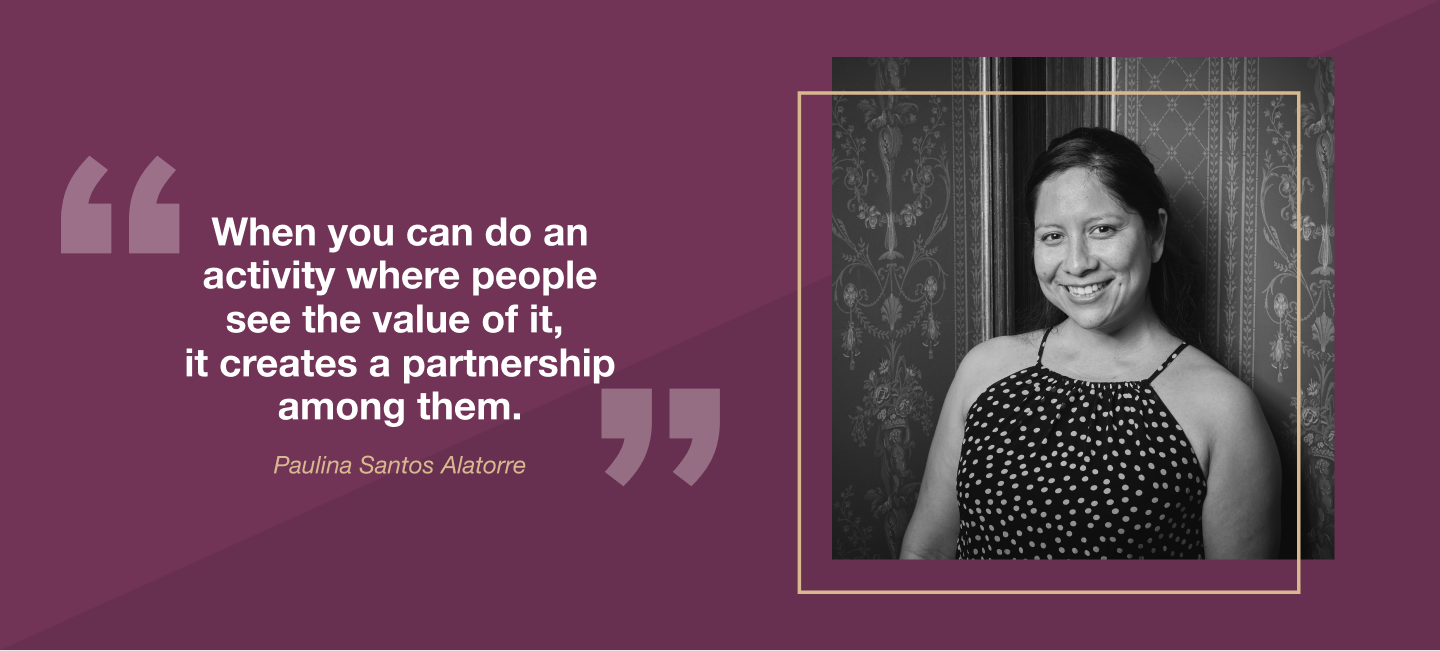Episode 025
August 21, 2019
025 – How can we foster positivity in vulnerable contexts – with Paulina Santos Alatorre

Sign up to download the free 1-page summary.
Intro
In this episode, I talk to Paulina Santos Alatorre, a psychologist, social worker, educator and conflict mediator. We talk on how we can foster positivity in workshops on painful topics and in vulnerable contexts – such as domestic violence, gender equality and with participants who face challenging life situations such as asylum seekers.
Paulina was born in Mexico and has worked in Mexico, Uganda, Thailand but also in Europe. Her expertise is in mediation and conflict prevention. In the show, Paulina shares how she adjusts to different cultural and social environments and how she manages to keep positivity within the group. You will hear about different exercises on how to help participants communicate and connect within a challenging environment.
Don’t miss the part when we speak about how we can use an outsider’s perspective to close and reflect on a workshop. Specifically, Paulina shares an experience where workshop hosts invited clowns for that task!
Don’t miss the next show: sign up to my newsletter and subscribe to the show through your podcast player.
Feeling inspired by the conversation in this episode? We can have our own – take a seat at my virtual table as part of a Mastermind Group.
A huge thank you must go to SessionLab, the sponsor of Workshops Work. Claim your free two months of SessionLab Pro now – this deal is exclusive to Workshops Work listeners!
Questions and Answers
1:45 What’s your story? What made you travel the world to facilitate workshops and what brought you to Ghent?
2:50 So what are the topics that you worked on?
3:48 To what extent would you adjust the framework of your workshop to the different cultures?
5:42 What brings them into the workshop and then if they are not aware of their problem?
7:16 What does dance trigger in participants?
8:20 How do you then introduce the “real topic” – would you reflect on the activity?
9:52 How do you maintain the safe space then when you switch the topics and is it possible to have a fun workshop on such a difficult theme?
11:32 What kind of exercises would you use for that?
14:29 How do you then make sure that everyone still participates?
16:59 Would you have a workshop, a mixed workshop on domestic violence with men and women in the same room?
19:22 And you mentioned exercises for learning better communication. Can you give us an example?
21:16 How do you raise the awareness or this empathy actually for the points of view from other people?
24:15 Would you use meditation in your workshops?
27:21 How do you adjust to different cultural backgrounds, e.g. between Asia and Europe when addressing difficult topics?
29:11 What is your favourite exercise?
32:05 What did you learn from the children that you can apply to help adults?
34:06 What did you learn from your workshops working with people at risk about the workshops working with leaders and managers.
35:25 What is the difference in your way of starting a workshop when you work with on a leadership topic, for instance?
36:49 From your experience, what makes workshops fail?
37:38 What would be the moment that you realize, oh now I need the plan B
38:31 How do you bring them back then into mentally into the room?
48:18 What do you want a listener to remember from our conversation?
